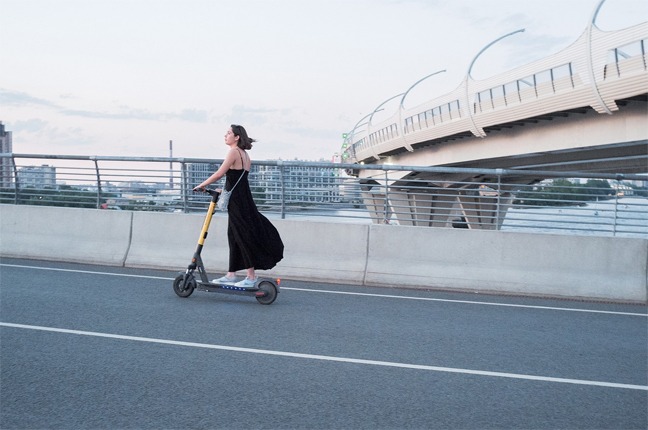See below from our friends at XMI PEO regarding the recent electric scooter fad. Interesting times!
Move over, Uber. Electric scooters are the latest transportation fad popping up in cities of all sizes. Urban commuters across the country are zipping around on these devices, utilized by a smartphone app and rented by the minute.
While e-scooters offer an easy and sustainable way to get around, their fast popularity is already sparking concern for businesses whose employees are using them on company time. Whether an employee hops on a scooter to make a customer delivery, run an office errand, or meet with a client across town, riding these devices on the clock exposes companies to workers’ compensation risks that they may never see coming. And with more employees using scooters to commute to and from work, the lines of liability can get murky.
Scooter operators typically require users to sign waivers absolving the manufacturer of any responsibility should an accident happen. In case of a serious injury, however, these waivers are usually not worth the paper they’re printed on. Nonetheless, if an employee is injured on a scooter while conducting what’s considered to be company business, the employer could end up with a hefty workers’ comp claim. Worse yet, the business could get slapped with a tort lawsuit if an employee injures someone else or damages their property while riding a scooter.
Scooter accidents on the rise
How likely are these scenarios on a vehicle that goes less than 20 miles per hour? The chances are fairly high if you consider the spike in emergency room visits for injuries such as broken bones and concussions caused by scooter-related accidents. Few people who ride the scooters wear helmets or have much experience operating one. A recent study by UCLA found that only 4 percent of Los Angeles scooter users wear helmets. Combine that with hectic pedestrian and roadway traffic and distracted drivers, and the odds are ripe for a collision.
“Anytime you give someone a task that involves operating some kind of vehicle, something is bound to happen—it’s just a matter of time,” says Gordon Berger, a law partner with Atlanta-based FisherBroyles LLP, which advises XMI on labor and employment issues.
“Like any emerging technology that can be used as a means of transportation during work, employers have a responsibility to make sure employees understand what safe and practical use would be,” Berger says.
Employees and electric scooters
So, what’s the best way to handle employees using scooters during work hours? There are several routes you could take, but if you want to protect your company from being held liable for potential accidents, you need a clear-cut policy on what’s acceptable for their use.
First of all, decide if you want to give employees the option of using scooters. You could put a disclaimer in your employee handbook stating that you don’t recommend or approve their use during work hours or for business-related activities. That puts the onus on employees, who could face disciplinary action for violating the policy.
“Reinforcing the way you feel about your employees using these types of vehicles through company policies, payroll stuffers and email is the best way to protect yourself,” says Paul Hughes, CEO of Libertate Insurance, an Orlando-based property and casualty insurance provider. “You can’t be with them every minute of every day, but you can document how you expect them to act and enforce it as best you can.”
Proceed with caution—and scooter safety guidelines
If you want to give workers the freedom to use scooters, it’s best to set some safety parameters, such as requiring them to wear a helmet and learning how to operate one first. You may even want to restrict when and where they can use scooters or how fast they can drive them. It’s also wise to ban their use of cell phones, headphones or other devices while maneuvering scooters through busy streets.
“It’s possible to come up with a happy medium that allows employees to participate in this new technology, while limiting their use of it in ways that don’t seem sensible or safe,” Berger says.
https://xmigrowth.com/scooters-and-workers-comp/
Join the Conversation on Linkedin | About PEO Compass
The PEO Compass is a friendly convergence of professionals and friends in the PEO industry sharing insights, ideas and intelligence to make us all better.
All writers specialize in Professional Employer Organization (PEO) business services such as Workers Compensation, Mergers & Acquisitions, Data Management, Employment Practices Liability (EPLI), Cyber Liability Insurance, Health Insurance, Occupational Accident Insurance, Business Insurance, Client Company, Casualty Insurance, Disability Insurance and more.
To contact a PEO expert, please visit Libertate Insurance Services, LLC and RiskMD.
